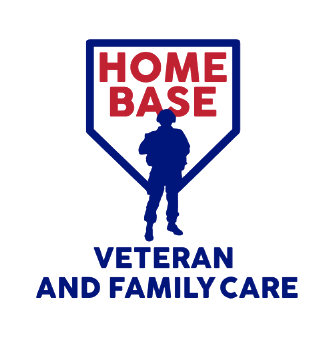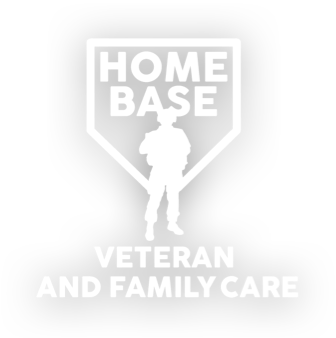Parenting During a Pandemic
When something outside your control changes your life, it’s what you do with what you can control that really shapes your children. Dr. Wes Sanders is a U.S. Marine Veteran and a staff psychologist at Home Base. As parents are facing multiple new challenges in the wake of COVID-19 pandemic, including school closures, remote work, and self-quarantine measures., Dr. Sanders offers some effective strategies and resources to help your parenting experience less stressful during this time.
Boundaries and Routines
Kids benefit a lot from consistency in the home environment. This creates a sense of predictability. If kids know, for example, that negative behaviors will have the same negative outcomes, then they might be less likely to push those boundaries or push those limits. If they know, for example, that they have a limited amount of screen time and after that screen time is met, then they are no longer able to get more screen time or they might lose screen time for negative behaviors. The more consistent in the follow through with any consequences for negative behavior or for maintaining those screen-time hours, the less likely kids are to push back. It creates a safe and comfortable environment where kids know the limits of their behavior. This all sounds well and good, but in practice is actually quite difficult and maybe even not feasible in the home environment with all that typically goes on.
Trying to create a semblance of normalcy around the routines, having consistent morning routines, consistent bath time routines, consistent evening routines for going to bed. The more consistent these routines happen day after day, the safer the environment is for the child. And also in terms of behavior, kids are less likely to be disruptive or acting out when they know how the routine is going to go day after day. That’s the number one thing, try to stick with a routine that you all can live with for a longterm practice. Then that can create this environment that is more consistent and safer for your kids and ultimately creates less of a headache for parents.
Self-Care
Another practice for parents is really just making sure that you have time for self-care, which might sound like a little bit of an odd idea in a household filled with kids, or with a lot of other obligations that you have on your plate. But self-care is really critical for allowing you to have that space to decompress, to take a breath, to gather yourself, and ultimately to have the resilience to keep up this new routine for the long term. Here is what that might look like:
Virtual playdates with other parents and kids
A virtual social hour, coffee social, a happy hour with other parents or friends
Exercising can be really beneficial. It not only keeps you physically stimulated, but it also helps you mentally to be able to relax and to recover.
Give yourself five minutes to take a break and accept the situation. Anything that you can do to give yourself that mental space is going to be really important, not just for you, but for your ability to be a parent and be there for your kids when they are up and when they are bouncing around the house.
Tag Team
For parents with other parents in the household, being able to tag in or tag out at different times of the day can be essential in balancing all the other obligations that you might have. Having the space to go back and forth between parenting duties can be helpful for both of you to have that space that you need to accomplish all the other obligations you might have in the home.
Exercise and Get Some Fresh Air
Try to get out of the house as much as you can. If the kids can get outside, burn off some energy, get that outdoor experience, and really for everyone to be able to get outdoors here and there, it’ll really help with the mental health. It’ll help with that feeling of cabin fever, of being cooped up, and it’ll also make it so that folks are less likely to be a little bit cranky in the household.
Get Creative
Being stuck with kids in the home also means finding new things to do and this can be challenging if there aren’t as many activities that you’re used to that are accessible. However, there has been a great response on the internet and through other online communities to make a lot of resources available for kids, such as virtual museum tours, podcast series, live storytelling, and audiobook streaming to name a few. For younger kids, you can get non-toxic bath paint to paint in the bathtub. Maybe there are online music classes or drawing classes that kids can participate in. All of these are different resources that are available for you as parents – take advantage of them and try something new. Click here for additional resources for kids of all ages and different developmental stages.
Final Notes
This is a very stressful time and a very unique time in our country. Not many people have experienced this kind of environment, especially as a parent. It’s a very anxious time for everyone so really make sure you give yourself a break. No one has all the answers – and you as a parent are really the expert on your kids. So be able to acknowledge that you are doing the best you can, give yourself a break, and rely on others for support when you need it.
 About the Author: Dr. Wesley Sanders is a Staff Psychologist at Home Base and specializes in the treatment of PTSD and readjustment issues, including family and parenting difficulties. He provides both individual and group therapy services at Home Base. He is trained in Prolonged Exposure Therapy and is a VA certified provider of Cognitive Processing Therapy for the treatment of PTSD. He also served in the United States Marine Corps Reserve for 8 years, receiving an honorable discharge at the rank of Sergeant. His research interests focus on supporting military/veteran families, particularly during transition to civilian life.
About the Author: Dr. Wesley Sanders is a Staff Psychologist at Home Base and specializes in the treatment of PTSD and readjustment issues, including family and parenting difficulties. He provides both individual and group therapy services at Home Base. He is trained in Prolonged Exposure Therapy and is a VA certified provider of Cognitive Processing Therapy for the treatment of PTSD. He also served in the United States Marine Corps Reserve for 8 years, receiving an honorable discharge at the rank of Sergeant. His research interests focus on supporting military/veteran families, particularly during transition to civilian life.


 Home Base
Home Base